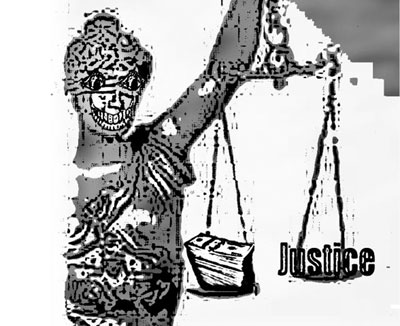All Nonfiction
- Bullying
- Books
- Academic
- Author Interviews
- Celebrity interviews
- College Articles
- College Essays
- Educator of the Year
- Heroes
- Interviews
- Memoir
- Personal Experience
- Sports
- Travel & Culture
All Opinions
- Bullying
- Current Events / Politics
- Discrimination
- Drugs / Alcohol / Smoking
- Entertainment / Celebrities
- Environment
- Love / Relationships
- Movies / Music / TV
- Pop Culture / Trends
- School / College
- Social Issues / Civics
- Spirituality / Religion
- Sports / Hobbies
All Hot Topics
- Bullying
- Community Service
- Environment
- Health
- Letters to the Editor
- Pride & Prejudice
- What Matters
- Back
Summer Guide
- Program Links
- Program Reviews
- Back
College Guide
- College Links
- College Reviews
- College Essays
- College Articles
- Back
Non-Violent Resistance MAG
I was never able to fully comprehend what the word resistance meant until I joined the 2013 Summer Institute for Human Rights and Genocide Studies. It was there that I realized that I'd been subconsciously resisting for many years. I was a victim of bullying from the fourth grade until my first day of high school. For five years I faced cruelty on a daily basis, and for five years my parents watched me cry and wonder what was wrong with me.
Every day was a new struggle. I would stand at my bus stop with kids who would glare and snicker at me. I would struggle to find a seat on the bus since nobody was willing to let me sit with them. If kids refused to move, I would have to climb over them to get a seat. After I came home discouraged, my mother would ask me if I wanted her to drive me to school. I remember looking at her and saying, “Mom, I can't let you drive me to school because if you do, they'll win.”
Resistance is supposed to be passive physically but be a warrior both in spirit and in mind. Resorting to violence ultimately creates more problems and leaves behind devastation and sorrow. But the power of an educated mind voicing what is unjust is the greatest weapon anyone can wield.
Through the Summer Institute for Human Rights and Genocide Studies I was privileged to meet many amazing people who have peacefully resisted injustice. Of all the speakers, one woman's story and determination moved me the most. Shabana Basij-Rasikh is just 22 years old. She grew up in Afghanistan, where fewer than six percent of women are educated beyond high school. With determination and the support of her family, Shabana graduated from Middlebury College. She has since founded Sola, the first and possibly only boarding school for girls in Afghanistan.
When Shabana was six, the Taliban took over Afghanistan, making it illegal for girls to attend school. For five years she dressed as a boy and walked with her older sister to a secret school; this was the only way they managed to get an education. Every day they feared for their lives.
To be brave doesn't mean to be unafraid. Being brave means you have the courage to resist and look fear in the face. To prevent getting caught, Shabana and her sister took different routes to school and hid their books in grocery bags so it looked like they were going shopping.
The school was in a house that held more than a hundred girls. Every day those girls, their parents, and the teachers risked their lives to provide a brighter future for these young women. When Shabana was beginning to lose hope, her father told her, “You can lose everything you own, your money can be stolen, you can be forced to leave your home during a war, but the one thing that will always remain with you is your education.”
Shabana is just one of millions who have and still are advocating for change and raising their voices against injustice. Another remarkable woman I learned about was Irena Sendler, born in 1910 and died in 2008. She was a Polish Catholic nurse who worked in Warsaw during the Holocaust where she saved 2,500 Jewish children by transporting them in ambulances as if they were sick. She also hid them in trash cans and even coffins. Later, Irena reunited these children with their families who had survived, and for those who weren't as fortunate, she found adoptive homes.
This is a woman who is considered a hero to many, yet Irena did not think of herself that way. “I could have done more,” she wrote. “This regret will follow me to my death.” Irena's story is inspiring and shows how one person can truly make a difference. By learning about people like Shabana Basij-Rasikh and Irena Sendler, we can help create a brighter future for our generation. It is our moral duty as a global society to become the voice for those who dare not or cannot speak.
Martin Luther King Jr. once said, “In the end, we will remember not the words of our enemies, but the silence of our friends.” Too many of us keep silent, hoping someone else will fix what is unjust in the world. We must not remain voiceless for our brothers and sisters who have had their rights stolen! Educate yourself about injustice. Find a problem that sparks you interest, and create small ways to resist and make a difference.

Similar Articles
JOIN THE DISCUSSION
This article has 4 comments.
